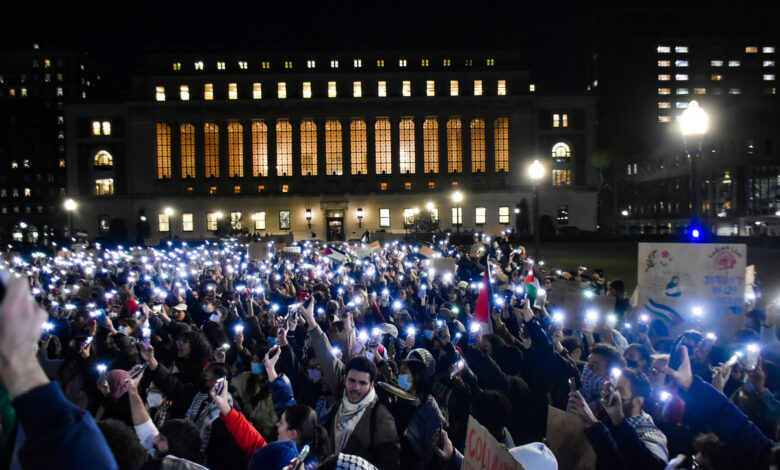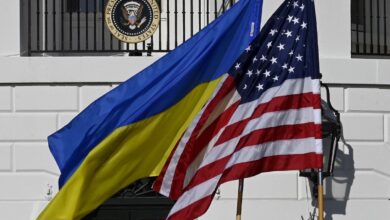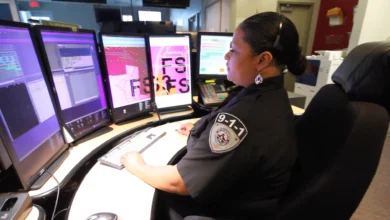Protests Escalate at Columbia University & Other Schools

The atmosphere is tense at Columbia University and several other institutions as protests escalate on April 22, 2024. What began as peaceful demonstrations has now intensified, with students and faculty expressing growing frustration over various issues. Here’s a detailed look at the latest developments in the ongoing protests.
Background
The protests at Columbia University and other schools have been brewing for weeks, fueled by a range of grievances including campus policies, social justice issues, and concerns about institutional transparency. Students and faculty have been advocating for change through various channels, including petitions, rallies, and public statements.
Escalation of Protests
As tensions mounted, the protests took a more confrontational turn on April 22, 2024. Reports indicate that clashes have occurred between demonstrators and law enforcement officers, resulting in arrests and injuries. The escalation has prompted authorities to increase security measures on campus and monitor the situation closely.
Demands and Concerns
The protesters have put forth a list of demands, which vary depending on the specific issues affecting each institution. Common themes include calls for greater diversity and inclusion, accountability for instances of discrimination or harassment, and increased transparency in decision-making processes. Additionally, protesters are advocating for changes to academic and administrative policies to better support marginalized communities on campus.
Response from University Administrations
University administrations have responded to the protests with varying degrees of openness and engagement. Some institutions have issued statements expressing support for the right to peaceful protest while reaffirming their commitment to addressing the concerns raised by students and faculty. Others have faced criticism for what protesters perceive as inadequate responses or attempts to suppress dissent.
Impact on Campus Life
The protests have had a significant impact on campus life, disrupting normal activities and creating an atmosphere of uncertainty. Classes have been canceled or moved online, and access to certain campus facilities may be restricted due to safety concerns. Students and faculty are navigating these disruptions while grappling with the broader issues driving the protests.
Student Perspectives
Amidst the turmoil, students have been vocal about their reasons for participating in the protests. Many cite a desire to hold their institutions accountable for addressing systemic injustices and creating a more inclusive campus environment. Others express frustration with what they see as a lack of meaningful action from university leadership and a need for greater transparency and dialogue.
Looking Ahead
As the protests continue to unfold, it remains to be seen how university administrations will respond and whether meaningful changes will result from the demonstrations. The coming days are likely to be critical in determining the trajectory of the movement and its impact on campus policies and practices.
Conclusion
The protests at Columbia University and other schools reflect a broader societal push for change and accountability in higher education. As students and faculty voice their concerns and advocate for reform, the protests serve as a reminder of the importance of dialogue, transparency, and inclusivity in shaping the future of academia.
Stay tuned for further updates on the evolving situation at Columbia University and other institutions as the protests continue to unfold.
Keywords: Columbia University, protests, student activism, higher education, social justice, campus policies, diversity and inclusion, accountability, transparency.




